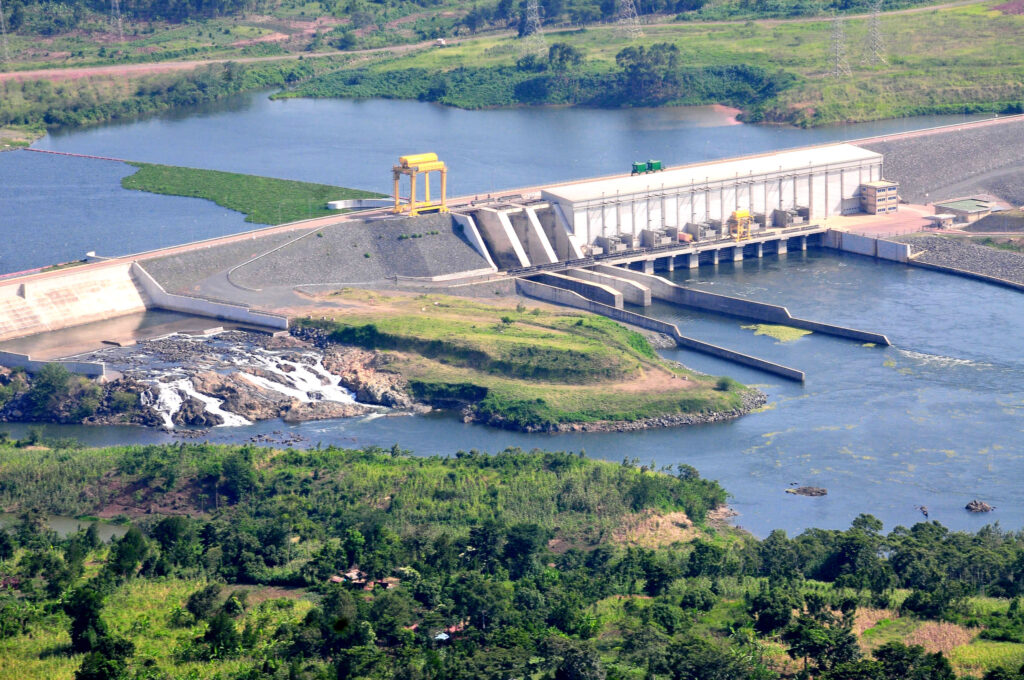On Thursday, July 14, 2023, Africa Institute for Energy Governance (AFIEGO), an organization dedicated to influencing energy policies to work for the poor and vulnerable communities as well as support national socio-economic transformation organized a meeting with the undersigned thirteen (13) civil society organizations (CSOs) and discussed among others the Bujagali dam project failures, high tariffs, tax exemptions and others.
The 13 CSOs whose main objective is to promote good energy governance based on the access rights including access to information, public participation and access to justice for redress for the common good appreciated the government’s efforts through the Auditor General’s office for the regular audit reports on relevant sectors of the economy including electricity that the office has continued to compile and submit to parliament to support and facilitate the oversight role of the Parliament.
For instance, they specifically noted that the Auditor General 2017 value for money audit report on the oil refinery land acquisition project in Hoima helped the affected communities to fight for their compensation.They said that the audit reports help the citizens to hold the government accountable.

‘’Other key audit reports in the electricity sector include the Jinja-Kenya and Mbarara-Rwanda power transmission power lines, the Karuma-Kawanda electricity transmission line and others which have helped to provide relevant information to the public’’, reads a report from the meeting.
The meeting noted that despite the challenges of poor implementation of Auditor General’s reports which has facilitated worsening corruption cases in the country, the reports remain critical in promoting the common good as they provide relevant and timely information to Parliament and citizens to promote transparency and accountability, promote citizens participation and help in pressuring those who abuse public resources.
The meeting agreed to engage the Auditor General (OAG) to conduct a forensic audit into the operations of Bujagali Energy Ltd regarding the Bujagali dam. The meeting noted that the Auditor General’s report will support the implementation of the Parliament’s Ad hoc committee report on Bujagali dam tax waivers and other failures. The meeting took place at AFIEGO’s head office,Kampala.
At the meeting, the CSOs expressed dismay that president Museveni, returned the Income Tax (Amendment) Bill 2023 and asked parliament to insert a clause to grant the Bujagali Energy Limited (BEL) that owns and operates the Bujagali hydropower project another one-year tax waiver. In returning the tax bill, the President claimed that the tax exemption will help in reducing the cost of electricity in Uganda for the benefit of the citizens and promote industrialization.
The CSOs noted with great concern that the President’s claim was untrue because since 2012 the Bujagali dam project has enjoyed tax exemptions throughout but electricity tariffs have remained high and unaffordable for over 80% of Ugandans.
The CSOs made a number of observations during the meeting
- a) The failure by the government to respect and implement the Parliament’s Ad hoc committee report on Bujagali dam project: The CSOs noted with concern that while Parliament produced a report with critical findings and recommendations on Bujagali dam, to date the report has remained unimplemented.
b). Disbanding the Rural Electrification Agency (REA) without a performance evaluation audit: The meeting observed that the government took a decision and disbanded REA without first evaluating why it had failed to deliver and the implications of its failures on projects such as Bujagali, Own Falls dam, Kiira dam and others as well as the impact of these projects on electricity tariffs. Yet it’s clear that without cleaning the entire electricity sector, no amount of tax exemptions will ever help to reduce the tariffs in the country. It should be noted that throughout its existence, REA operated in opaque way without any form of transparency and so there is no doubt that Ugandan tax payers lost a lot of money and therefore it’s unfortunate that it was dissolved before holding responsible people accountable.
c). Failure to audit the performance of Electricity Regulatory Authority (ERA) and its implications on electricity sector: The CSOs noted that ERA was established in 1999 under the 1999 Electricity Act. This was the time when Uganda was privatizing the electricity sector including generation, transmission and distribution. Unfortunately, since the establishment of ERA no forensic audit has ever been done to ascertain the capacity of ERA as a regulator of the electricity sector. It should be noted that the government privatized the generation, transmission and distribution of the electricity services in the country on the claims that the government had no
capacity to ensure efficient electricity services to the citizens. So without assessing the capacity of ERA, it remains impossible to know whether or not the government’s single regulator has capacity and competence to ensure effective regulation and without effective regulation, tax exemptions or any other measures for tariff reduction may never succeed. Perhaps this explains why dams like Own Falls, Kira and of course Bujagali have failed to provide affordable electricity to the citizens and yet we generate our electricity from free water.
d). Irregular insurance claims: The CSOs noted that in March 2023, the Parliament’s Ad hoc committee report on Bujagali dam indicated that the BEL irregularly claimed insurance of over UGX 427million. They noted that government irregularly paid billions of money to Bujagali Energy Limited which was already included in the tariff cost of the power from Bujagali dam.
These costs to the energy company are taxes from over 21% of Ugandans who continue to livebelow the poverty line.
e). Bujagali hydropower tariffs remain high, the CSOs observed that despite the government’s intervention of the tax waiver on BEL’s operations and the refinancing of the Bujagali hydropower project, the current tariff is still over and above the government target of US cents 5 per kWh. The current power tariff from the dam is US cents 8.3 kWh which remains costly to all consumers small and big. High and unaffordable tariffs negatively affect the quality of lives and national socio-economic transformation.
- e) The CSOs also noted that Electricity Regulatory Authority (ERA) estimates that the current installed electricity capacity in Uganda stands at 1,379.1MW however, with investments such as the Bujagali project and others, the country continues to have one of the lowest electrification rates in the world at 19%. As a result, over 90% of Ugandans still depend on charcoal and firewood to meet their cooking needs. The CSOs indicated that due to high power tariffs of the electricity from big dams such as Bujagali, Isimba, and others, more Ugandans have shunned away from grid-based hydropower from 24% in 2019 to 19% in 2020 as indicated by the Uganda Bureau of Statistics (UBOS) report 2020.
f). Deemed power: The CSOs at the meeting observed that part of the reason why power prices remain high is the production of deemed energy. They noted that Uganda’s total installed capacity currently stands at over 1,379mw. Per December 2022 statistics from ERA, the peak domestic and export demand for power is less than 900MW. The CSOs noted that as at April 2019, Uganda was producing 528.24MW of excess power that was not being consumed, but had to be paid for. The excess power (deemed energy) that is being produced has increased as dams such as Achwa II, Isimba and Karuma dams were launched after that date. This explains why in the FY2022/2023 budget, the government allocated UGX190 billion for deemed electricity. This means that there is no market for the current 1,379 mw. The members noted that a poor and highly indebted country that is struggling with projects that have no return on investments, corruption scandals and others challenges cannot afford to pay for deemed power.
g). High Debt burden: The CSOs further observed that according to the recently passed budget committee report for the financial year 2023/24, Uganda’s total public debt stands at UGX 80.7 trillion. They noted that to clear this burden, each of the estimated 45 million Ugandans living today will need to make a one-off contribution of at least UGX1.7 million. The CSOs noted that nthe biggest part of the Uganda’s debt is due to energy projects and other big projects which have failed to bring returns on investments.
For example, the meeting noted that government borrowed over $2.2 billion for the 600mw Karuma and 183mw Isimba dams which are among the biggest hydro power projects in the country. The loan for the construction of Karuma alone was $1.7bn while Isimba dam was $567m from the Exim Bank of China with the government of Uganda financing only 15% of the two dams. These loans have become a moving target of the national debt figure which is continuously increasing in every Uganda’s financial year. At the moment, there is no market for the Karuma Power and this worsen the challenge of deemed energy.
h). High return on investments by the Bujagali Energy Ltd and other power companies: Further, the CSOs observed that government was to earn a return on its investment of USD 20
million by 2023 after the repayment of Bujagali hydropower project debts, but the project refinancing extended the repayment period from 2018 to 2032. The CSOs noted that by implication, the extension implies that the government would earn its return on investment when the capital invested in the project has depreciated over the years and may require significant investment in rehabilitation to maintain the dam’s production capacity. Similar challenges were encountered during the takeover of 380mw Kiira and Nalubaale hydropower dams from Eskom which required the government to invest $10 million (UGX 36billion) to fix multiple defects on the power dams.
They also said that the high return on investments of 19% by the BEL has made the poor Ugandans pay exorbitant power tariffs. Other companies such as Umeme which distribute power of Bujagali and other dams also are entitled to returns of 19% on every capital they invest.
These unfair contractural arrangements cannot never allow Ugandans enjoy affordable tariffs even where the government give tax waivers to investors.
i). Worsening levels of corruption in electricity sector: The CSOs finally observed that as a result of corruption and lack of foresight by our leaders, power utility companies have profited from the country’s electricity through forcing Ugandans to pay exorbitant power tariffs. For instance, in March 2018, the president wrote a letter accusing some ministry of energy officials for inflating the magnitude of the technical and commercial loses incurred by Umeme so as to keeptariff rates high. In his letter, the President said that although commercial losses shrunk to 1% and Umeme claiming to have invested $500m in the distribution infrastructure, the power tariffs had remained high.
In addition, the CSOs also noted that corruption in the country is too much and currently the country is losing over UGX 3 trillion every year as a result. Amidst this level of corruption, projects such as Bujagali, Isimba, Own Falls, Kiira and others cannot even where tax exemptions are given provide electricity that is affordable by the majority citizens. At the moment, the available evidence indicate that the country is already lost over $204 million in lost generation revenue due to delays in Karuma dam completion. Recently, REA was disbanded due to corruption and other failures. This happened after the government and donors had invested trillions of shillings in the operations of REA that never yielded any positive returns in terms of creating market for the electricity, increasing electricity access, helping communities to use electricity and others. REA remained a total loss to the country from its establishment until it was dissolved.
- RECOMMENDATIONS
(i). The Auditor General should conduct a forensic audit on the implementation of the Bujagali dam project: Since its commissioning, Bujagali dam has enjoyed huge and endless tax exemptions but has failed to provide the promised electricity at US 5 cents. The audit should cover the negotiation of the dam’s Power Purchase Agreement and its terms, the operations of BEL, the effectiveness of tax exemptions, the role of ERA as the regulator, the role of Uganda Electricity Generation Company Ltd as the supervisor and other relevant matters with a view to find out the impact of the dam on access to clean affordable and reliable electricity services in Uganda.
(ii). Nationalize the electricity sector. It is clear that since 1999 when the sector was liberalized, Ugandans and the country at large has not benefited. There is evidence that no country in the world has ever developed her electricity sector based on private investors whose main aim is to make maximum profits. So, it’s necessary that the government should take a major decision and nationalize the electricity sector so that Ugandans own and manage their own sector.
(iii). Amend the Electricity Act 1999 (as amended 2022) to provide punitive penalties: The government and parliament should work together to urgently amend the electricity laws to provide punitive penalties including life sentences for anyone convicted of offences such as connivance and inflation of costs of dams, transition and distribution lines, manipulation of tariffs, bribery on the electricity services and others. These penalties will help to restore discipline into the sector.
(iv). Audit and reform all electricity agencies: The government should audit to assess and re-examine the performance of all government power agencies including ERA, UEGCL, UEDCL, the disbanded REA and others so that the right decisions are made on how to reform the sector. This will help to avoid piecemeal interventions that have for many years failed to provide solutions but instead have continued to facilitate corruption in the sector.
(v). Refund any funds irregularly and illegally earned: after the audit of the Bujagali dam project, other government agencies, ensure that they refund any funds earned from those bribes, irregular payments and others.
The report was signed by Dickens Kamugisha Chief Executive Officer, AFIEGO. Other signatories include; Guild Presidents’ Forum on Oil Governance (GPFOG),Youth for Green Communities (YGC), Citizens Concern Africa (CICOA), Center for Conservation and Ecoenergy Initiative (CCEI), Center for Environment Research and Agricultural Innovations (CERAI), Oil Refinery Residents Association (ORRA), South Western Institute for Policy and Advocacy (SOWIPA), Kanungu Youth and Women’s Association (KYWA),Katwe Sanitation and Clean Energy Women’s Club (Kasese),Women for Green Economy Movement (WOGEM),Action Coalition on Climate Change (ACCC),Water Governance Institute (WGI) and Energy Governance Initiative (EGI) .



